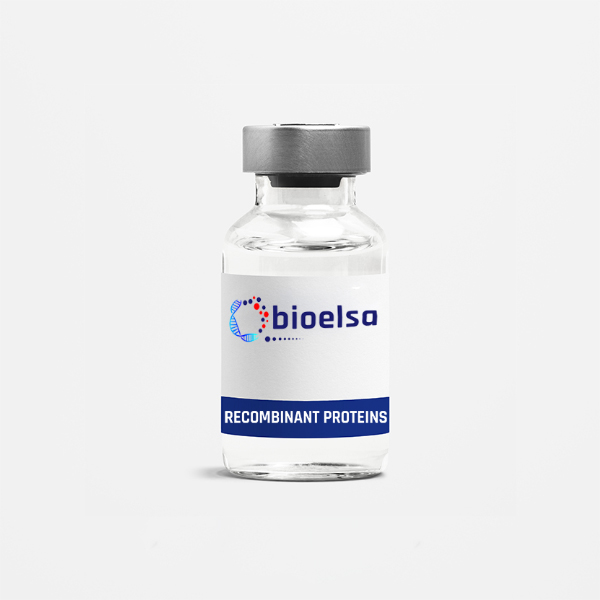| Gene ID |
25712 |
| Accession | P01581 |
| Alternative Name | IFN-gamma<br/>Recombinant Rat Interferon-Gamma (IFNG) |
| Species | Rat |
| Source | E. coli |
| Description | IFN-gamma is produced mainly by T cells and natural killer cells activated by antigens, mitogens, or alloantigens. It is produced by lymphocytes expressing the surface antigens CD4 and CD8. IFN gamma receptors are expressed on all types of human cells with the exception of mature erythrocytes. IFN-gamma- receptor complexes are rapidly internalized by endocytosis. IFN-gamma has antiviral and antiparasitic activities and also inhibits the proliferation of a number of normal and transformed cells. Interferon-gamma synergises with TNF-alpha and TNF-beta in inhibiting the proliferation of various cell types. The growth inhibitory activities of IFN-gamma are more pronounced than those of the other interferons. However, the main biological activity of IFN-gamma appears to be immunomodulatory in contrast to the other interferons that are mainly antiviral. T helper cells IL-2 induces the synthesis of IFN-gamma and other cytokines. IFN- gamma acts synergistically with IL-1 and IL-2 and appears to be required for the expression of IL-2 receptors on the cell surface of T lymphocytes. Blocking of the IL-2 receptor by specific antibodies also inhibits the synthesis of IFN-gamma. |
| Accession | P01581 |
| Functions | The ED(50) was determined by the cytopathic inhibition assay with murine L929 cells infected by EMC virus, and was found to be < 1.0 ng/mL, corresponding to a specific activity of > 1.0 x 10^6 units/mg. |
| Formulation | Recombinant Rat IFN-gamma was lyophilized from 0.2 ?m filtered PBS solution, pH 7.0. |
| Solubility | A quick spin of the vial followed by reconstitution in distilled water to a concentration not less than 0.1 mg/mL. This solution can then be diluted into other buffers. |
| Appearance | Lyophilized Powder |
| Molecular Weight | 16 |
| Purity | >95% as determined by SDS-PAGE |
| Concentration | <1.0 EU/μg of recombinant protein as determined by the LAL method. |
| Shipping Condition | Ambient Temperature |
| Storage Condition | The lyophilized protein is stable for at least one year from date of receipt at -70?C. Upon reconstitution, this cytokine can be stored in working aliquots at 2? - 8?C for one month, or at -20?C for six months, with a carrier protein without detectable loss of activity. Avoid repeated freeze/thaw cycles. |
